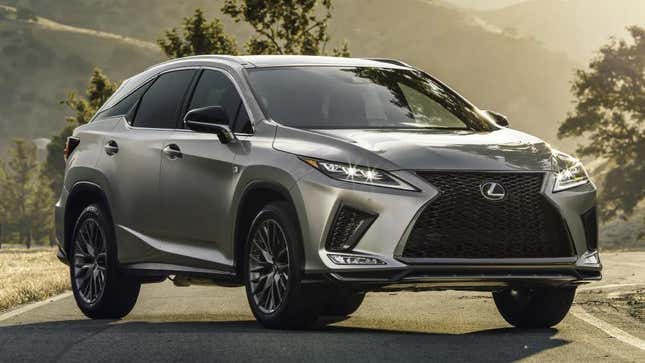
Lexus, a company that no longer sells a five-speed manual ES300, is in the throes of a bit of a malaise. Its cars are all fine, competent, and good-looking, but only the super-Camry ES has been substantially updated in recent years as company focuses more on its hot-selling SUVs. There’s also seemingly no real full-electrification push, at least in the U.S. It isn’t surprising that sales in North America were flat last year compared to 2018. Slightly more surprising is how China and Europe made up for it.
Lexus sold around 325,000 cars in North America, Lexus said this week, which it said was “level” with 2018. To put that in context, BMW sold 324,826 cars in the same time, while Mercedes sold 316,094 in that time in the just U.S., and likely more than both Lexus and BMW if you factor in all of North America. (If you want another fun figure, Toyota sold as many Camrys here as Lexus sold vehicles.)
Lexus is still a player, in other words, but its dominance in the aughts as the U.S.’s best-selling luxury carmaker is an increasingly distant memory.
The good news for Lexus is that overseas sales have been on the uptick, with Lexus also saying this week that sales were up 25 percent in China, to a new total of around 202,000 cars, and sales in Europe up 14 percent to around 87,000.
That suggests that Lexus’s actual ambition—world domination on the scale of Mercedes or BMW and not just success in the U.S.—might not be such a pipe dream, though it still is pretty far away. Lexus sold 765,330 cars last year globally, or about a third of what Mercedes (2.34 million) and BMW (2.17 million) did.
But Lexus’s growth is also somewhat of a double-edged sword, as Bloomberg notes.
Lexus’ shift toward smaller and more fuel-efficient vehicles such as hybrid gas-electric motors has proved popular in China and Europe, but an aging product lineup in the U.S. — where larger vehicles rule the road — has cost it market share and momentum.
That sales split strikes me as positive, in the end, for Lexus, and a good reason to keep going with a full complement of sedans and SUVs in its lineup, as American automakers retreat. It should maybe give some of those cars some attention though. The IS, for example, hasn’t been substantially updated since the 2014 model year, though a new generation is allegedly coming this year.